- Home
- Fay Weldon
Long Live the King Page 5
Long Live the King Read online
Page 5
‘But you keep saying how you disapprove of pomp and circumstance, Rosina.’
‘Oh don’t be so silly, Minnie. One can hold two different ideas in one’s head at the same time. You do it all the time. You love Arthur and you hate Arthur.’
Minnie was too alarmed to speak and Rosina laughed.
‘Oh, don’t worry about it,’ she said. ‘All women love and hate their husbands. That’s why I’m never going to marry. It’s too confusing. That, and having to produce all these little Hedleighs running around, and not a Dilberne amongst them. My children will never get to parade up and down in ermine trim in Westminster Abbey; at least one of yours will. And you’re not even English.’
‘Rosina,’ said Minnie cautiously, ‘if you want another title so much you could always marry one.’
‘For heaven’s sake, Minnie,’ said Rosina, ‘who would marry me? I think too much. I talk too much, and not the kind of thing anyone wants to hear. Besides, I don’t want any old title; I want the one that was denied to me.’ She uttered a kind of shuddering sigh. On his perch in the corner of the room, Pappagallo, Rosina’s parrot, aroused no doubt by some sense of unusual emotion on his mistress’s part, opened a beady eye, squawked, ‘Votes for Women!, Votes for Women!’, scattered some nut husks around the room for the staff to pick up, closed the eye again and fell silent. Tears began to form on Rosina’s cheeks. ‘I just want Mama and Papa to ask me to sit beside them when they’re doing something special.’
Minnie felt so homesick for her own mother and father it was all she could do not to weep herself. She had found that the English disliked touching one another, but she ventured to put her arms round Rosina to comfort and was not rebuffed. They embraced. Minnie came up to Rosina’s shoulder. It was part of Rosina’s problem that she was as tall as her father and rather ungainly with it, towering over most men, and, given half a chance, felt always compelled to argue with them rather than to charm, flirt and flatter, as her mother did.
Rosina occupied the west wing of Dilberne Court, the Elizabethan pile that had been the Hedleigh home for so long and seen the family through its many vicissitudes. The house had some forty rooms, accumulated over centuries, most leading into one another – which was annoying but had to be put up with – many staircases and corridors, a few grand halls, a priest hole, a ghost and no central heating. It was more pretty than impressive, with its tall chimneys and added Jacobean attics, but pleasantly situated in five thousand acres of good pastureland, and sheltered by the hills around. It was not at all warm in winter, but the household wrapped up well, though the servants, who were kept busy carrying coals, increasingly longed for their annual migration to Belgrave Square for the Season. In Belgrave Square there was central heating, running hot water and electric light everywhere.
But after the family narrowly escaped financial ruination as the previous century turned to the new, it had within a couple of years met sudden prosperity, as its current head, Robert, Earl of Dilberne, had transferred his interests to the gold and metal mines of the Transvaal. Now, in both Belgrave Square and Dilberne Court, builders and painters, electricians and plumbers, worked ceaselessly, restoring the place – if not to its one-time glory, at least with a few extra amenities and not in any danger of falling down for another hundred years.
Robert was now obliged to spend a great deal of his time in London – ‘running the country’, as Isobel put it – and Arthur broadly speaking looked after the estate. Broadly, because much of Arthur’s time and attention was now taken up with his new company, the Jehu Automobile Works, devoted to the advancement and manufacture of internal combustion-engine racing cars, which he ran with his new partner, Davey Clacton, in an old mill in the village of Dilberne, one mile from the Court. Luckily, the estate had a competent and honest manager in the form of Tom Shooter, who kept its acres functioning well and in good repair. Arthur’s current ambition was to create an automobile racing track, both for testing his and Davey’s motors, and to extend the track in time to a proper racing circuit to take in Dilberne and the adjacent village of Samsey. He aimed to have an annual international event underway to start in 1905.
‘Pity the poor villagers,’ said Lady Isobel. ‘The noise, the people!’
‘With wheat only twenty-seven shillings a bushel and falling,’ said his Lordship, ‘they’ll live to be grateful.’
‘The roar of the engines will be music to their ears,’ said Arthur. Steam engines had at least been quiet: the new combustion-engine motors were fast, more manoeuvrable, better suited to hills, but extremely noisy. Racetracks and circuits were the thing of the future, he swore. Road racing was popular, but increasingly dangerous as machines got faster and automobiles more plentiful and likely enough soon to be banned by an interfering government.
‘Oh Arthur,’ said Minnie, ‘I wish we could spend just a little more time together.’
‘I love you with all my mind and all my heart,’ said Arthur, promising to be home as soon as he possibly could from giving his attention and skills to the split radiator, the problematic flange, the fusing spark plugs – whatever the emergency happened to be. He’d been true to his promise, paying Minnie so much focused attention her complaints were, for a time, quietened. But it was a bit lonely.
‘Well, you married him,’ said Rosina. ‘I warned you. He’s a man.’
It was after an argument with Isobel that Rosina had left her rooms at Belgrave Square and taken up residence in the west wing. The argument had been about Pappagallo, a bird whom, although obviously handsome, the girl kept only to annoy, training it to shriek ‘Votes for Women!, Votes for Women!’ whenever a man came into the room. It liked to use its beak to scatter birdseed husks around its cage and when let out to fly about the room – which was often – left its droppings everywhere, and in general annoyed the staff. Now a medical friend had warned Isobel of the dangers of psittacosis, a disagreeable and sometimes fatal disease which can be passed from parrots to humans. For Isobel this was the last straw. She told Rosina the parrot had to go. She could not abide it in the house a moment longer. Rosina enquired as to why everyone hated her so, and her mother suggested perhaps it would be as well if Rosina went down to live in Dilberne Court for a while and take the parrot with her. Rosina said yes, rather to everyone’s surprise, since she would be away from the lectures and political meetings she loved so much. Perhaps, the family thought, if Rosina was more in the country her revolutionary zeal would be muted. It was unlikely that Rosina could make a good marriage, but she might yet make a respectable one, perhaps to some local landowner.
Rosina was at least someone to talk to, though what she said was often shocking. Arthur talked about engines – and there was a limit to Minnie’s interest in chain drives and drum shafts – Isobel talked about fashion and fabrics, and though Minnie liked spending money well enough – as who does not – and had helped greatly in the furnishing and remodernizing of Belgrave Square, was easily bored by talk of the latest styles. You saw, you decided, you spent, and that was that. If you lived in the contemporary world, what appealed to you was contemporary fashion; why worry about it?
And his Lordship seldom put in an appearance, being so busy in London – Rosina would suggest he took more than a passing interest in the young fancy-free Duchess of Marlborough, but Minnie didn’t believe a word of it, he being so obviously dedicated to his wife. Robert quite frightened Minnie: she would be struck dumb when he was there at the head of the table. He must think her very stupid. Minnie’s father Billy had a different kind of power – amiable until angered but then perfectly capable of strangling an enemy with his bare hands. She was used to that. Her father-in-law was yet more urbane, but would never use his bare hands. He would get someone else to do whatever it was, then alter the law of the land to make sure there were no consequences.
That evening Minnie confided her conversation with Rosina to Arthur when finally he got home for supper, which they had in their rooms by the fire; fresh bread from the kitchens
, newly churned butter – properly hung cold beef (Minnie seldom ate pork) with walnut pickle, followed by apple pie (the last of the season’s Bramleys) and Cheddar cheese.
‘Rosina is really upset about not being invited to the Coronation,’ she said to Arthur. ‘Can’t you do something?’
‘It’s her own fault,’ Arthur said. ‘She can’t be trusted to behave. I don’t blame her; it’s just very sad when a girl has brains. She’s never going to be happy. And what a man wants above anything else is to have a happy wife. Are you happy, Minnie?’ he asked. He liked to be sure.
‘Very happy,’ she said, and if she crossed her fingers she was sensible enough to be sure he didn’t notice.
‘That’s good,’ he said, ‘because I am.’ Arthur’s fingernails were always dirty with engine oil, no matter how hard he scrubbed away at them. She found that rather exciting. Isobel deplored it.
‘Anyway,’ said Arthur, ‘the parents are probably keeping them back for the Baums, or whoever seems suitable nearer the time. There’s a good six months to go, after all. A lot can happen in six months. Davey Clacton’s talking about adapting Jehu V with a fixed-drive shaft and ring and pinion gear: he reckons we could get her up to sixty-five miles an hour if we did, it’s worth trying. A real nuisance, having to stop everything and get into the old ermine and sealskin, just about the time we’ll have her ready. All very well for you girls, you love dressing up. That’s all that Rosina misses, I’ll swear.’
The song kept rising up in Minnie’s mind, taking her by surprise. She wished it wouldn’t.
Oh what care I for your goosefeather bed,
With the sheets turned down so comely-oh,
Oh what care I for your house and your land,
I’m off with the raggle-taggle gypsies-oh.
It wasn’t even as if their bed was goosefeather, it was a hard and scratchy horsehair mattress, which she and Arthur were quite satisfactorily pummelling the life out of.
Ivy’s Sweetheart
Ivy had gone round to the cottage opposite Swaley’s Farm and handed her mother the parcel. It was only sensible and hardly stealing. At least it had not been burned and a parcel destined for Adela was not going to end up anyhow with the poor of the parish, more likely in the wardrobe of some deserving relative of the Lady Superintendent. She was right about the parcel: it contained a truly fancy and expensive piece of clothing, a young girl’s nicely made red silk velvet dress, ankle length, with a pink lace collar and crimson satin ribbons, with good seams for letting out, tiny hand-stitching and of very good quality indeed. Her mother reckoned it would fetch at least ten shillings if not more on her Saturday stall. Doreen could get the thatch mended, or at least a start made on it. Ivy wrenched a smile or two out of her mother on the strength of it.
They would have burned the wrapping paper but Ivy wanted to keep the little reindeers, so they smoothed out the paper and folded it neatly, and wound the string onto Doreen’s existing roll of odds and ends. It was green. Neither had seen green string before. String was meant to be white. But waste not want not.
As she passed the farm she ran into George, who as it happened had not finished up for the day. She took him back round to the milking parlour and found the tiled floor and wooden stalls still wet from where he’d been rinsing down the vacuum tubes which took the effort out of hand milking, and had meant another three of his friends were now without jobs. Fortunately, the tickets had not got wet, or only a little bit. She showed them to George who said she should tell no one what she had done – as if she was likely to: she’d only left them with George, who was over six foot tall, so he could perhaps have a word with Tim Peasedown the postman, who was barely five foot, to make sure he denied all knowledge of having delivered either parcel or letter. George said he would, and would make enquiries. The tickets might be worth a little: they might be worth a lot. The seat numbers could perhaps be altered or removed; he had friends in the Art Department at college. It was interesting that someone, somewhere, knew the date of the Coronation. He pocketed the envelope and nudged Ivy further into the milking parlour. They would have to be quick. He had to cycle the eleven miles into Bath to get to his two o’clock class with his tutor Mr Edfield on Theories of Perception. Ivy couldn’t be too long away; the Mrs Hon. Rev. would get suspicious.
George was very clever. Just a few more exams to pass and he would be qualified to train as a science teacher. The government would pay him a guinea a week to do so and he would be done with farm life and milking parlours for ever. He was ambitious, not like the other boys in the village. He would go far, and then probably not have time for her, of course, but Ivy would face that when she came to it.
She crept round behind George and put her arms round his large frame. They would only reach so far. She really enjoyed that. There was no fat, it was all muscle. There was a difference in scale between the two of them that she found very satisfactory: he made her feel tiny, helpless and looked after. Though when it came to it, she had to admit, he was more likely to look after himself than anyone else. He would look at you intently with his bright wide blue eyes – he needed glasses; a pity, but whoever was perfect – and smile his easy smile and be so innocent and boyish you would end up doing whatever it was he wanted. He was a charmer, with an instant smile and white, even teeth. People trusted him on sight. She was not sure they were right to, but she knew how to look after herself.
He turned her round, grabbed her arms, quick as a flash and steered her round to the hay pile at the end of the parlour where it was comparatively private and had her on her back – she hadn’t bothered with knickers – and was into her within minutes. ‘Careful, careful,’ she managed to say the other side of her moaning, and he was. He would sometimes ask her to do what the Bible forbade, so he didn’t have to withdraw but could carry on, but so far she had resisted. It didn’t seem decent and her friend Beryl said it hurt a lot though you got used to it. The last thing she wanted to do was get pregnant, mind you, even though her mother would know what to do if she did, so it was a temptation, just to see what it was like. But she didn’t want to end up like Beryl, with a reputation as the village bicycle.
And then he had to be off, but not before he had given her a lecture on how the vacuum tubes of the milking machines worked, and how and why the cows preferred the tubes to hand milking, facts and theories she perhaps had rather not known. George was like that. You had to stand and listen and be told and agree. But it was worth it.
He was going to be late back that night, he was going to a lecture – but perhaps she’d be able to slip out from the Rectory while everyone was asleep and meet him up at the farm? – his employers were away for the night and they could have a comfortable bed for a change.
‘Oh go on, Ivy,’ he said. ‘Be a brick. I’ll sort out the tickets for you. We could get up to a thing or to if we had peace and quiet. You know how I love you.’
Oh yes, yes, yes, love, she thought. Do you believe I’m an idiot?
She said she’d think about it, and asked him what the lecture was and he said he was going to a public séance with some of the fellows from college. They were all interested in theories of life after death. Fame and fortune awaited the one who could prove there was. Most séances were fraudulent – but this particular medium seemed to be genuine. If she was, they’d pay her to call by the college to do a range of controlled experiments. Just as some people had talents – good at art, good at writing – some people, often very simple people, were sensitives, good at communicating with the other side.
‘Good at conning gullible folk out of their money, more like,’ said Ivy. ‘Now there’s a way to make a living!’
But she said she’d meet him, sneak out when everyone else was asleep. There was no way she wasn’t going to, and he knew it.
An All-Consuming Fire
When the salesman from Jones and Willis, Church Furnishers, carelessly tapped out his pipe on the wall of the lych-gate, a glowing ember flew up in the wind and landed i
n the splintered wreckage of the musicians’ gallery. The wood was dry and powdery. The ember continued to smoulder quietly, stuck under the raised wooden seam of St Cecilia’s gown where she’d kicked it up high in her dancing so many centuries ago. The fire started by devouring what was left of St Cecilia and her musicians, and having succeeded in that crept round to the other side of the panel, but its underside was thick with the powder left by a myriad boring beetles, and that blocked oxygen to the flames. For almost twenty minutes it looked as if all would be saved.
It was at this time that Ivy Baines slipped out of the Rectory for a further assignation with the would-be scientist George Topp. She marvelled at the sudden strength of the wind. There were spots of rain in the gale and thunder in the distance. She counted three seconds between thunderclap and lightning. The storm was three miles off. She’d hoped it would pass at a distance: she didn’t want the Rectory roused from sleep to notice her absence. She’d seen no sign of fire, she said later. She passed by Swaley’s Farm without noticing a thing.
But a fierce gust from the south-west had sent sparks to wrap flames round the pale, dry, fragile fingers of the charred lute player, and send flaking fragments back down into the pile. Soon the whole bonfire was ablaze, and the lych-gate too.
Whether now it was that the steeplecock was struck by lightning and the roof started to burn, or whether flames leapt from lych-gate to tree and then onto the porch could not later be determined – the thousand-year-old yew with its dark, oily leaves and dry hollow trunk had certainly gone up at some stage, probably early on.
It was a nasty night and few were venturing out. It was not until the flames set off the great expanse of the thatched roof of the tithe barn with what was almost an explosion that Yatbury was roused to danger. The bell tower of St Aidan’s itself being out of action, and there being only a single bell at the new Baptist Chapel, there was no possibility of reverse peals, the traditional alarm. The wealthy Methodist St Bart’s, its copper spire completed in 1814, an upstart compared to Yatbury’s ancient St Aidan’s, had twenty-four bells in its belfry, famous for its peals, but was locked at night because of fear of theft of its silver plate by rogues and vagabonds. The telephone exchange was closed. The churchwarden had to cycle all the way to the next village for help.

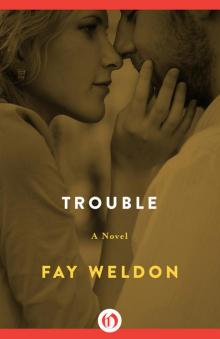 Trouble
Trouble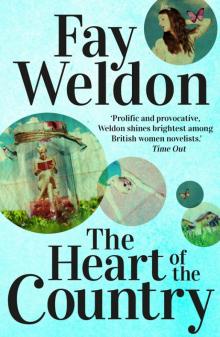 The Heart of the Country
The Heart of the Country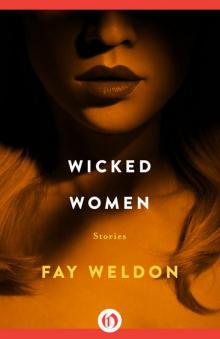 Wicked Women
Wicked Women Mischief
Mischief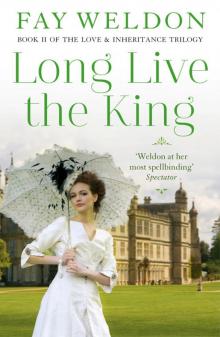 Long Live the King
Long Live the King Remember Me
Remember Me Worst Fears
Worst Fears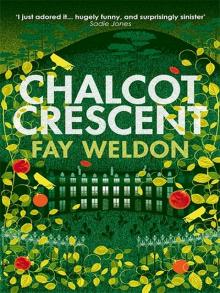 Chalcot Crescent
Chalcot Crescent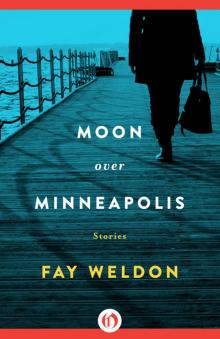 Moon Over Minneapolis
Moon Over Minneapolis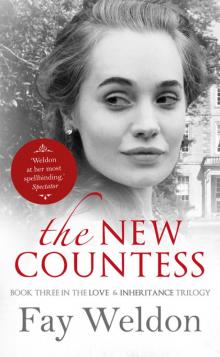 The New Countess
The New Countess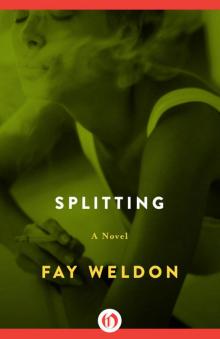 Splitting
Splitting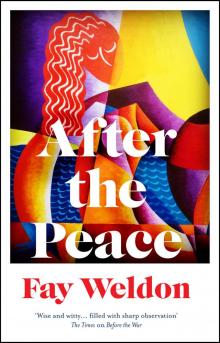 After the Peace
After the Peace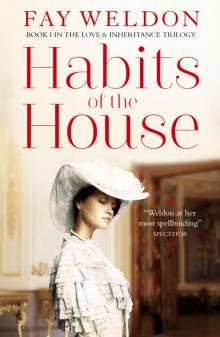 Habits of the House
Habits of the House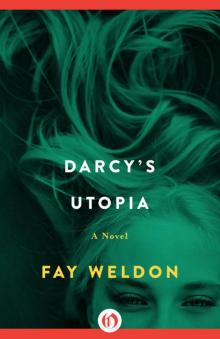 Darcy's Utopia
Darcy's Utopia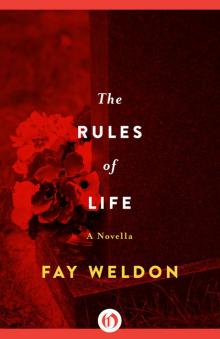 The Rules of Life
The Rules of Life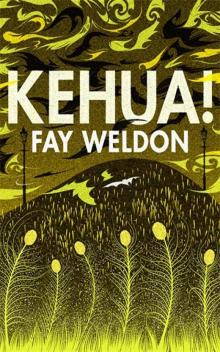 Kehua!
Kehua! Before the War
Before the War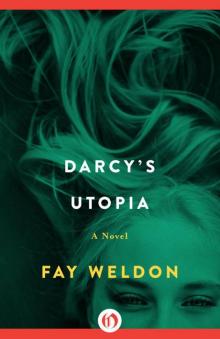 Darcy's Utopia: A Novel
Darcy's Utopia: A Novel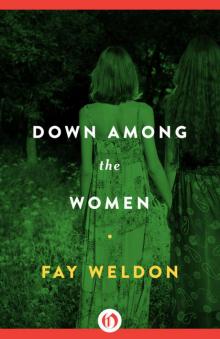 Down Among the Women
Down Among the Women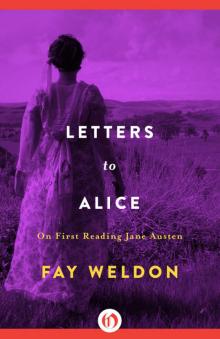 Letters to Alice
Letters to Alice 3 Great Historical Novels
3 Great Historical Novels Female Friends
Female Friends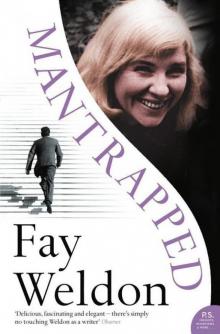 Mantrapped
Mantrapped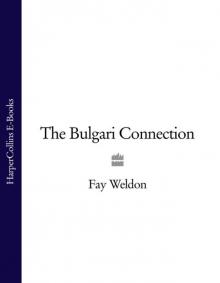 The Bulgari Connection
The Bulgari Connection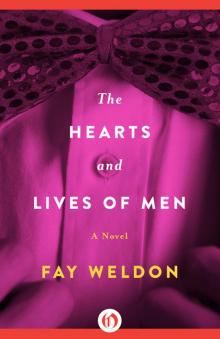 The Hearts and Lives of Men
The Hearts and Lives of Men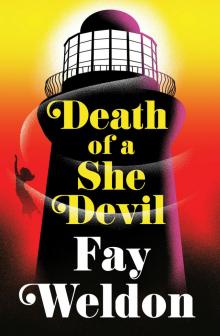 Death of a She Devil
Death of a She Devil